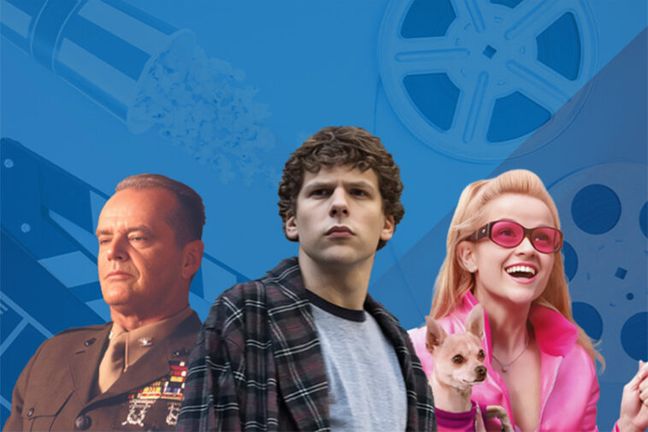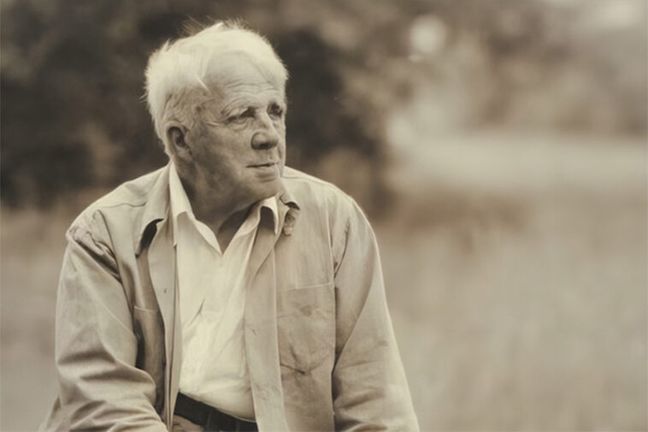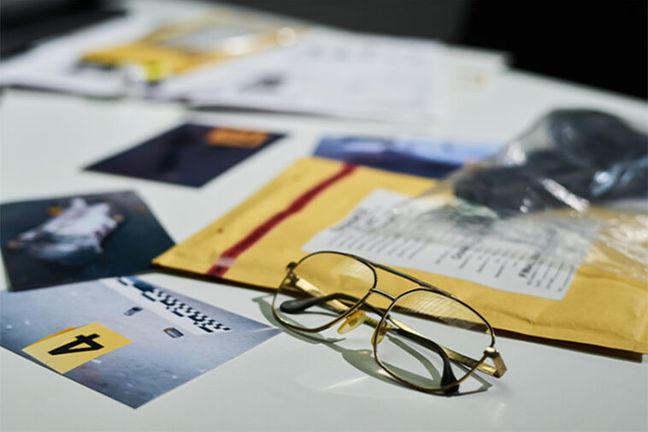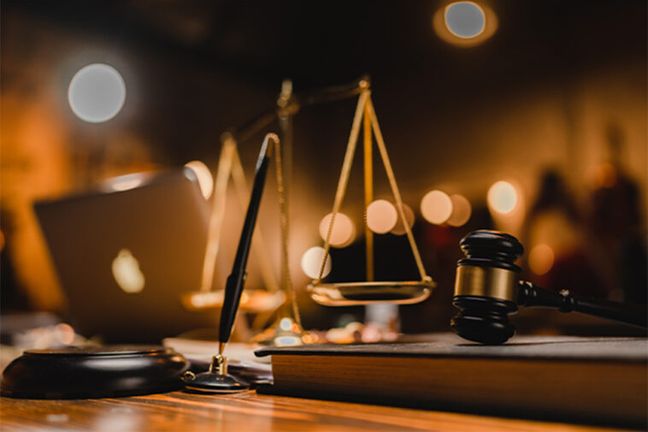The first question anyone asks when you tell them that you are a lawyer is: “Oh, how similar is it to [insert TV show or movie here]?” Very often, you find yourself pointing out mundane inaccuracies and concluding with something along the lines of: “Well, it’s not nearly as intense as that.”
Good and bad examples of legal practice abound in popular media. Most are entertaining and some even provide for guidance or motivation in one’s professional life. Here, I wanted to point to the good, the bad, and the ugly, and note that even the less accurate portrayals of legal practice can offer attorneys some practical guidance for approaching their work.
Suits: Follow the Rules of the Road
Suits[i] is a show full of inaccuracies and overblown dramatics. Still, it is one of the greatest serialized legal dramas out there and it certainly got me and some of my classmates through the ups and downs of law school. The show is full of contentious battles, fraudulent conduct, corporate intrigue, and, well, nice suits. But the most glaring problem with the show’s portrayal of the legal profession is the courtroom scenes.
At least once per season, the dynamic duo of Harvey Specter and Mike Ross will have a case go to trial. Watching the show as a layperson, one would come away with the reasonable assumption that courtroom practice involves speeches about morality, a lot of yelling, and every witness inevitably breaking down on the stand. Almost none of these things ever happens in court, but the most frustrating part of these scenes for attorneys is how objections are handled. One of the lawyers will, without fail, completely ignore the fact that a witness is on the stand and monologuing to the jury about the ethical failings of opposing counsel, the weakness of the evidence, and the fact that one party or the other is a liar. From counsel’s table, you will hear a bevy of objections: “Leading! Argumentative! Lacks foundation! Your Honor, please!” Yet, every objection is met with a stone-faced judge who says nothing and allows the performance to continue.
This, as I have often explained to friends and family, is nowhere near how trials go. Every objection stops the proceedings, the judge rules on the objection, and the questioning continues. Courtroom practice is rarely as dramatic as Suits portrays and an attorney who comports themselves in line with those in the show are likely to find themselves sanctioned and with a very low success rate for their clients.
Takeaways: Know the rules of court, always stop talking once an objection is made, do not pretend you went to law school and passed the bar if you intend to practice law, and leave the impassioned speeches for closing argument.
The Social Network: Preparing The Client
Those who have not seen The Social Network[ii] since it came out in 2010 would be forgiven for remembering it as a film focused primarily on college kids making it big by founding the first durable social networking platform of the modern age. On rewatch, however, David Fincher’s masterpiece is revealed for what it truly is: A two-hour deposition with flashbacks interspersed with testimony to keep the audience engaged in the story.
The deposition scenes are nightmare fuel for those who practice litigation. Jesse Eisenberg’s Mark Zuckerberg is petulant, sarcastic, and argumentative, often failing to pay attention to the question that was asked and making on-the-record jabs at opposing counsel and other parties[iii]—who could forget Zuckerberg telling the Winklevi, “If you invented Facebook, you would have invented Facebook” and telling opposing counsel, “You have part of my attention, you have the minimum amount.” Even seasoned litigators wake at night in a cold sweat imagining a client going off the rails like this during a deposition and causing more problems for the case.
What can be learned from this film is less about how to start a multi-billion-dollar company and more about what to consider when approaching a client’s deposition. Attorneys should spend time speaking with their clients and conducting mock questioning to get a sense of the client’s ability to stay on task. They should gauge their client’s propensity to engage in argument or sarcasm that will inevitably prolong proceedings and make the transcript read like a confession. Attorneys should be sure to explain to their clients the nature of a deposition, why it is so important that they take the process seriously, and counsel them to avoid their worst impulses. Undoubtedly, the fictionalized Zuckerberg attorneys took these steps and still ended up with harmful testimony. but no amount of counseling was likely to help that character. In the real world, however, preparation is often key to avoiding these problems and hands-on preparation can do attorneys a world of good.
Takeaways: Be sure to prepare your clients extensively for deposition testimony, understand your clients’ tendencies in order to best serve their needs, and be supportive when your college roommate starts talking about starting an internet company.
Legally Blonde: Trust the Experts
Legally Blonde[iv] is a perennial classic amongst modern-day law students. They love when a professor plays a scene from the film in class, even though they still cringe whenever Elle Woods asks “what, like it’s hard?” in response to being asked how she managed to get accepted to Harvard Law School. But the biggest takeaway from this movie is not how great pink looks in the courtroom; it is that trusting the experts is often the key to success.
In the famous murder trial scene in the movie, the defendant seems destined for prison when all the evidence starts to suggest that she was the killer. Then, however, the victim’s stepdaughter testifies that she was washing her hair during the murder and did not hear the gunshot. Elle, however, knows that this cannot be true because “the first cardinal rule of perm maintenance [is] that you’re forbidden to wet your hair for at least twenty-four hours after getting a perm at the risk of deactivating the ammonium thioglycolate.” She establishes that the witness could not have been in the shower at the time of the murder and thereby exonerates her innocent client.
Obviously, in this instance, Elle Woods is the expert in a niche area of haircare science, but the general principle remains: Rely on your experts. Attorneys are often generalists, proficient in legal reasoning and arguing the facts. However, most attorneys are not experts in medicine, plant science, or for that matter, haircare. Failing to employ expert services leaves attorneys at a disadvantage; they are likely to miss the small but important details necessary to prove or disprove the other side’s allegations and are, in such instances, prone to losing winnable cases. When litigation turns upon specialist topics, be sure to employ specialists to catch the important details.
Takeaways: Trust the experts, pay attention to the details, and never wash your hair within twenty-four hours of getting a perm.
A Few Good Men: Lay the Foundation
A Few Good Men[v] deals with a court martial proceeding after a hazing incident in the Marine Corps resulted in the death of a recruit. I have no experience with JAG proceedings or courts martial and will not attempt to explain the nuances of the movie from that perspective. An important lesson that all lawyers can take from this film, however, lay the foundation.
In perhaps the most famous courtroom scene in American filmmaking, Tom Cruise’s Lt. Kaffee is questioning Jack Nicholson’s Col. Jessep about the hazing incident, accusing Jessep of ordering the attack and seeking to get him to admit as much. Jessep denies the allegation and dodges the question, lecturing Kaffee on his service and the importance of obedience and uniformity in the military. Kaffee, however, does not let up, and proceeds to lay the foundation for the ultimate question: “Did you order the Code Red?” Kaffee presents flight logs contradicting the witness’s testimony, repeats Jessep’s testimony that none of his subordinates would ever disobey his direct orders, and notes the contradictions in Jessep’s testimony about why the dead Marine needed to be transferred before he was killed. In essence, Kaffee painted Jessep into a corner and left him with no other choice but to admit that he ordered the attack on the victim.
Theatrics, monologues about walls being guarded by men with guns, and yelling aside, this scene provides a useful lesson about the importance of laying the foundation before asking important questions. Often, it is simpler to simply ask a witness whether they hit the victim, whether they wrote a false report, or whether they failed to perform a necessary task without first showing the witness why you already know the answer to the question. This leaves the witness free to deny the allegation and leaves the attorney scrambling to pick up the pieces or with no choice other than to move on without making the point. However, setting the stage for the question with documents, the testimony of other witnesses, and the witness’s own testimony makes it far more difficult for the witness to deny the truth. At the very least, it provides fertile grounds for arguing that the witness was lying. Failing to do the initial groundwork of laying the foundation can often be the difference between a successful line of examination and a fruitless one.
Takeaways: Do your due diligence, lay the foundation, and be prepared to “handle the truth.”
To be sure, much of legal practice as depicted in popular media is inaccurate. The practice of law is often portrayed as a dramatic battle— that just so happens to be waged in suits and ties—between good and evil. There are far fewer theatrics in the practice of law than popular media would have audiences believe, and much of legal practice is cordial, rarely involving screaming matches before judges and juries.
Still, lessons can be learned from the way legal practice is depicted on screen. While many depictions should not be used as a lawyer’s guiding star, small nuggets of wisdom can still be found in the unlikeliest of places. Even where the lessons should not be taken to heart, at least you can still enjoy annoying your family by objecting to every question an on-screen lawyer asks. Hopefully, that makes the show worth watching despite all the glaring inaccuracies.
Keep Reading
More by this author
Sources
[i] (Suits (2011–2019), USA.)
[ii] (The Social Network (2010), Columbia Pictures.)
[iii] It bears noting at the risk of exposing myself to the risk of being a witness at my own deposition that the real Mark Zuckerberg denies the accuracy of his portrayal in this film as well as the accuracy of many of its storylines. (See, e.g., David Batty & Chris Johnston, Social Network ‘Made Up Stuff That Was Hurtful,’ Says Mark Zuckerberg,” The Guardian (Nov. 8, 2014).)
[iv] (Legally Blonde (2001), Metro-Goldwyn-Mayer Studios Inc.)
[v] (A Few Good Men (1992), Columbia Pictures.)


 Author: Liam Sidebottom
Author: Liam Sidebottom
 Editor: Ashley Paige Fetyko
Editor: Ashley Paige Fetyko
 Audish v. Macias Builds Upon the Foundation Started in Howell v. Hamilton Meats & Provision, Inc. By Affirming the Admissibility of Medicare...
Audish v. Macias Builds Upon the Foundation Started in Howell v. Hamilton Meats & Provision, Inc. By Affirming the Admissibility of Medicare...
 My New Year’s Resolutions at Work
My New Year’s Resolutions at Work
 Barking Up the Wrong Policy
Barking Up the Wrong Policy
 California Civil Procedure Code Section 998 – a Means to An End
California Civil Procedure Code Section 998 – a Means to An End
 May or Must: California and the Ninth Circuit Applies Grammar Rules for FMLA
May or Must: California and the Ninth Circuit Applies Grammar Rules for FMLA
 Par For the Course
Par For the Course
 Shining Light on Phantom Medical Bills–Lessons from Washington on Using Federal Hospital Price Transparency Rules to...
Shining Light on Phantom Medical Bills–Lessons from Washington on Using Federal Hospital Price Transparency Rules to...
 When Roads Diverge in the Wood: the Power of Risk in Building a Fulfilling Career and Stopping Nuclear Verdicts®
When Roads Diverge in the Wood: the Power of Risk in Building a Fulfilling Career and Stopping Nuclear Verdicts®
 Ask Atty: Scott Ruksakiati
Ask Atty: Scott Ruksakiati
 Actions With Far-Reaching Consequences: Brody v. Hoch, Non-Resident Jurisdiction, and the “Long Arm” of the Law
Actions With Far-Reaching Consequences: Brody v. Hoch, Non-Resident Jurisdiction, and the “Long Arm” of the Law
 Let’s Get Ethical! Amendments to Illinois Rules of Professional Conduct Intended to Guard Against Harassment and Discrimination...
Let’s Get Ethical! Amendments to Illinois Rules of Professional Conduct Intended to Guard Against Harassment and Discrimination...
 Bill Analysis: California’s AB 2049 and Its Effect On Summary Judgment Motions
Bill Analysis: California’s AB 2049 and Its Effect On Summary Judgment Motions
 Remembering the Fundamentals: Personal Jurisdiction as an Escape Hatch
Remembering the Fundamentals: Personal Jurisdiction as an Escape Hatch